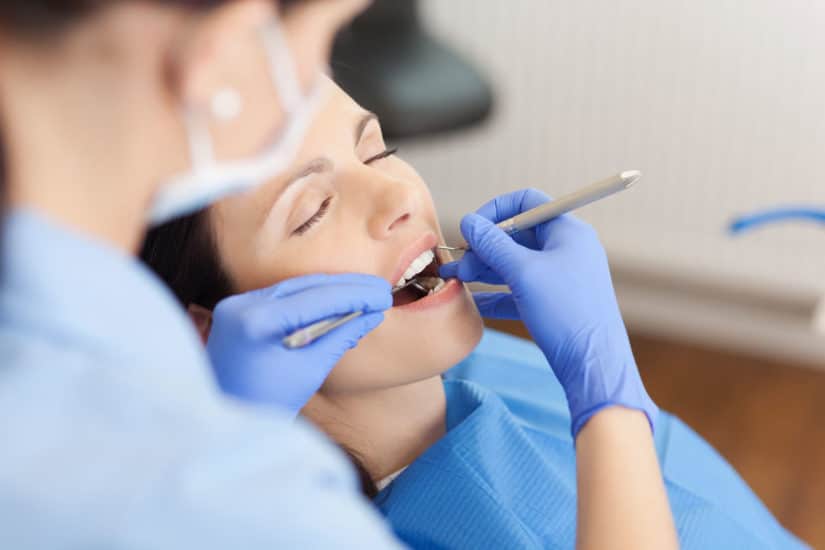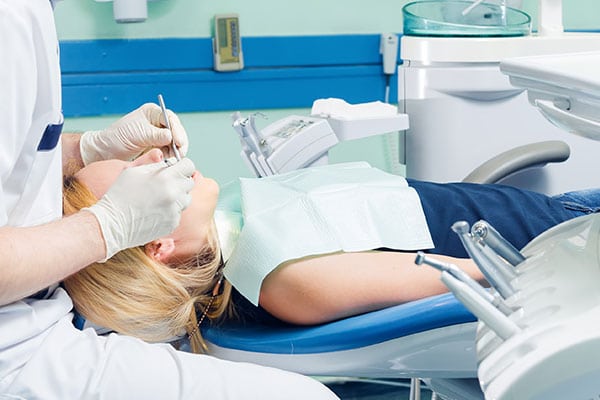It is essential to have regular dental check-ups and cleanings to ensure that you are enjoying healthy teeth and gum. However, sedation dentistry is for you if you are one of those million Australians who avoid going to the dentist out of fear or anxiety. This method alleviates your stress and makes your regular dental visits a calm and comfortable experience.
Dental Anxiety and Phobia
If you find excuses to avoid your dental appointments, you may be one of those who have dental anxiety or a dental phobia. People having dental anxiety gets nervous sitting in the dentist’s chair and generally try to avoid dental appointments.
But if you have a dental phobia, you will try your best to avoid visiting a dentist at any cost. You may not sleep well the night before an appointment out of stress and fear. In addition, you will feel sick when at the dentist. If any of this sound familiar to you, be assured that there are millions of people worldwide who feel the same way. Hence, the sedation dentistry method can help you to feel more comfortable and relaxed at the dentist.

What is Dental Sedation?
Sedation dentistry is a form of treatment technique in dentistry that involves giving different forms of medications to patients to promote relaxation during any dental procedures. Earlier, sedation dentistry used to be known as sleep dentistry. But the most patients who undergo sedation dentistry remain awakened during the entire process. Only the patients who are given general anaesthesia for severe circumstances become unconscious.
Depending on the anxiety level and phobia, there are four main types of sedation practices. It includes intravenous sedation, oral sedatives, nitrous oxide sedation, and general anaesthesia. Sedatives help patients who would otherwise avoid the dentist get the dental treatment they need.
Oral Sedatives
Oral sedatives involve taking sedation pills to relax a patient before their dental procedure. In most cases, the patient takes this medication one hour before the process. This type of sedative only relaxes you, and you remain conscious. It gives minimal to moderate sedation, depending on the dosage.
Intravenous Sedation
It is another type of anti-anxiety medication when the medication is delivered through the vein to get the continuous flow of drugs throughout the dental procedure. However, it causes the patients to fall asleep and make them unaware of the process. If the dentist chooses this type of sedation for you, you will have to wear a nasal tube that delivers oxygen, and your dentist will monitor your vital signs during the treatment period.
Nitrous Oxide Sedation
Nitrous oxide is an inhaled sedation in which patients breathe in a combination of nitrous oxide and oxygen to feel more relaxed. A patient is made to breathe nitrous oxide throughout the procedure via a nasal mask. Dentists can control the dosage as required.
Inhaled sedation wears off relatively quickly compared to other types of sedation. In most cases, it allows patients to drive home immediately after their procedure.
General Anaesthesia
The licensed dentist administers general anaesthesia to a patient. The patient becomes unconscious and remains deep asleep throughout the dental treatment procedure. Dentists will monitor the vitals throughout the appointment to ensure your safety, and you will not remember anything on waking.
Sedation Levels
Generally, dental procedures use three different levels of sedation. They are:
-
-
- Minimal sedation – You remain awake, but medications make you feel calm and relaxed. It can be described as a minimally depressed level of consciousness. It allows patients to retain their ability to respond to ordinarily verbal commands.
-
-
-
- Moderate sedation – In this sedation type, you are awake but may feel sleepy and go into a dreamlike state. Moderate sedation may not allow you to remember what happens during the treatment or how you think. Generally, you retain your ability to respond to verbal commands but may require stimulation from your dentist.
-
-
-
- Deep sedation – In deep sedation, you are on the edge of unconsciousness, but your dentist can awaken you if necessary.
-
-
-
- General anaesthesia – General anaesthesia is also called unconscious sedation. It is because you remain completely unconscious and wake up at the end of your procedure.
-
Are You Suitable For Sedation
Now that you know dental sedation types and their varying levels, you may want to see whether you can get them during your next dental appointment. If any of the following applies to you, you can ask your dentist:
-
-
- Dentist appointment makes you nervous and anxious
- You have extra sensitive teeth.
- You have a hard time controlling your movement
- You have a previous traumatising experience.
- You fear needles.
-
-
-
- You face difficulty in getting numb
- You have complicated dental issues.
-
Make An Appointment
Don’t let your fear or anxiety refrain you from going to the dentist. Like others, you also deserve to have a healthy and bright smile. You can inform the dental staff about your fear while booking your next dental appointment. They will help you to schedule an appointment to undergo sedation during your dental examination, cleaning, or other vital work.
Call Sunshine Dental Group on (03) 9133 8659 or request your appointment to know how sedation dentistry will work in your case.
Frequently Asked Questions
How Do I Choose a Sedation Dentist?
Most dental offices offer sedation dentistry procedures under minimal to moderate sedation. However, not all dental practices may have adequate training or experience in this field. So, you can check the following while seeking out an office with sedation dentistry abilities:
Credentials – You can check for the dentist’s credentials and analyse whether they are trained or experienced in administering sedation. In addition, you can ask for the sedation cases they have handled so far.
Dentist’s Experience – A qualified dentist must have considerable experience providing sedation dentistry services to different patients. It includes those with special needs, children, and others.
Specialisation – Any general practice can be certified to give certain levels of sedation. Still, those who specialise in sedation dentistry will be more skilful in handling any condition smoothly and with maximum ease. It is especially essential for patients with unique problems or disabilities, such as those with special needs.
Do health insurance policies cover sedation dentistry?
Generally, sedation dentistry is partially covered by maximum dental insurance policies. Your insurance plan can cover the actual dental work and procedures, but there is less likelihood of coverage of the costs involved with sedation typically. Most, if not all, plans consider sedation as an optional practice and therefore is excluded from coverage.
However, some health insurance plans may cover sedation if it is a medical necessity due to a pre-existing medical disability that may prevent a patient from getting dental care without it—for instance, patients with special needs. So, the coverage depends on your dental plan. Therefore, you can consult your provider for concrete details.
Can I request my dentist to put me to sleep during the dental procedure?
If your dental practitioner thinks it appropriate, you may be put under sedation. It will help relieve any physical or physiological pain the operation can induce. Your dentist will administer the sedative drug either during or before the procedure begins. It all depends on your anxiety level, help conditions, and type of sedation given.









